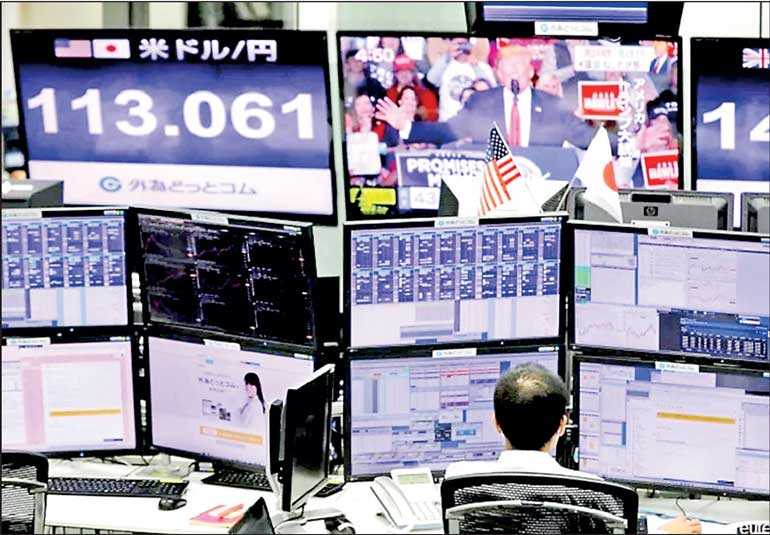Wednesday Feb 25, 2026
Wednesday Feb 25, 2026
Wednesday, 24 April 2019 00:00 - - {{hitsCtrl.values.hits}}

HONG KONG/TOKYO (Reuters): Stocks in Asia rose marginally on Tuesday as many markets reopened after the long Easter break, while oil jumped to its highest this year as the United States tightened sanctions on Iran.
MSCI’s broadest index of Asia-Pacific shares outside Japan was up 0.1%, while Japan’s Nikkei was little changed.
Chinese stocks extended losses on concerns that Beijing will slow the pace of further policy easing after unexpectedly strong first-quarter economic data last week. Shares in Shanghai slid 0.4% after policymakers vowed to fine-tune monetary policy, ensuring it is “neither too tight, nor too loose”.
Analysts believe Beijing’s message signalled a more tempered approach in easing policy amid worries about debt growth, and sent local stocks to their heaviest fall in almost four weeks on Monday.
But Stefan Hofer, chief investment strategist at LGT Bank Asia in Hong Kong, said a market adjustment was expected. China’s blue-chip stocks have surged over 30% so far this year on expectations of more stimulus and hopes that Beijing and Washington will soon reach a deal to end their bruising trade war.
“We’ve had a fantastic run in Chinese equities year-to-date, some profit taking is completely normal. I don’t think China is changing its policy that quickly,” he said.
On Wall Street, stocks hovered near break-even on Monday as the benchmark S&P 500 index was about 1% away from its record high hit in September, while the S&P energy index jumped on higher oil prices.
Oil prices jumped more than 2% the previous day to a near six-month high, on growing concern about tight global supplies after the United States announced a further clampdown on Iranian oil exports.
Washington said it would eliminate in May all waivers allowing eight economies to buy Iranian oil without facing US sanctions.
International benchmark Brent crude soared 2.9% to settle at $74.04 a barrel on Monday and US West Texas Intermediate crude jumped 2.7% to settle at $65.70. Both indexes climbed to nearly six-month highs during the session.
US crude futures last traded at $65.87 per barrel, up 0.5% on the day. But sharp gains in oil prices have so far had a limited impact on the broader financial markets.
“Unless the WTI rises well above $70-75 per barrel, there will be limited impact on US Treasuries and the dollar/yen,” said Makoto Noji, chief currency and foreign bond strategist at SMBC Nikko Securities.
Despite recent gains in oil prices, many investors still expect inflation to be well-contained in major economies including the United States, allowing the Federal Reserve to keep dovish stance.
The world’s largest economy reported worse-than-expected fall in home sales on Monday, as rising demand continued to be frustrated by a lack of properties.
The data “is pointing to the Fed being as accommodative as possible, which, for Asian investors, is good news,” said Jim McCafferty, Hong Kong-based head of equity research, Asia ex-Japan, at Nomura.
In the currency market, the dollar index, which measures the greenback against six major currencies, eased 0.2% overnight and last traded steady at 97.303. The index hit a two-week high of 97.485 on Thursday, before the start of Good Friday and the Easter weekend.
Against the Japanese yen, the dollar was 0.1% softer at 111.82 yen, while the euro was pretty much steady to the greenback at 1.1252.
With the jump in the price of oil, one of Canada’s major exports, the Canadian dollar rose 0.4% against its US counterpart overnight and last traded at C$1.3359.
On Monday, the Russian ruble hit its highest level against the euro in more than a year, and a one month-peak versus the dollar, also driven by the jump in oil.